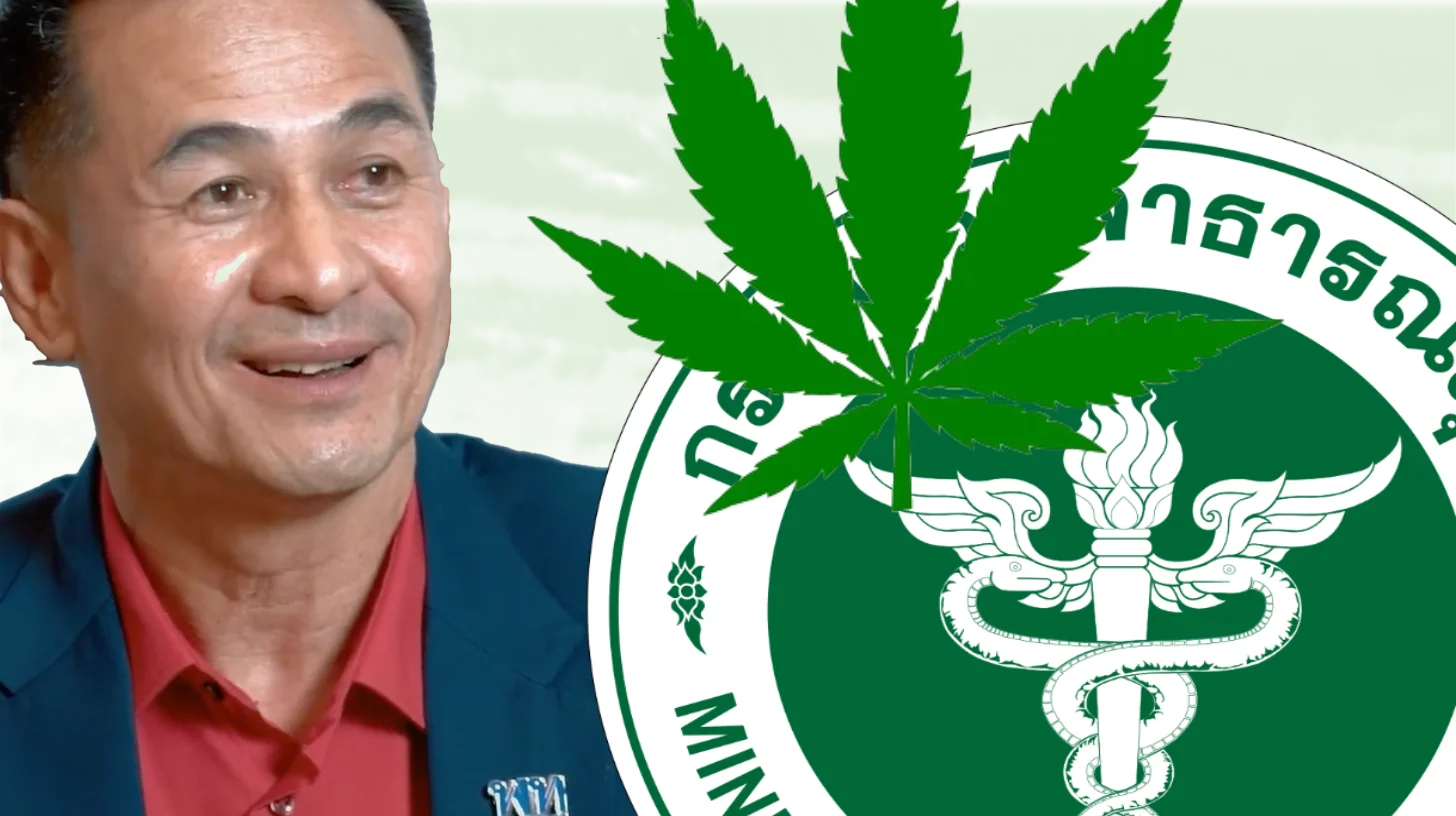- Why It Matters: Thailand is revising its cannabis laws, emphasizing medical use and tightening regulations against recreational use.
- The Big Picture: The new bill reflects Thailand’s evolving stance on cannabis, balancing potential health benefits with concerns over misuse.
- What To Watch: The impact of these changes on existing cannabis businesses and the broader implications for public health and law enforcement.
BANGKOK, THAILAND – Thailand’s Health Minister, Cholnan Srikaew, has recently enacted a bill that significantly tightens the regulation of cannabis, restricting its use to medical purposes only. This move comes as part of Thailand’s ongoing efforts to refine its approach to cannabis, balancing the potential health benefits against the risks of recreational misuse.
The new bill, which is set to be reviewed by the Cabinet and the Lower House, clearly outlines that cannabis can only be utilized for medical reasons. This includes promoting the health benefits that cannabis can provide, while also implementing strict guidelines to monitor and prevent its misuse for recreational purposes.
One key aspect of the new legislation is the control over the tetrahydrocannabinol (THC) content in cannabis products. Any product containing over 0.2% by weight of THC will be considered illegal, aligning with the Narcotics Code.
The bill also addresses the status of existing cannabis stores and businesses. While there are no current laws to revoke licenses for legally operating stores, these businesses must ensure compliance with the new regulations once they come into effect. This includes selling only the parts of the cannabis plant that are deemed legal in Thailand.
It should be noted that the bill has not been reviewed by the media or the public as of yet. Many of the statements coming from the Minister of Public Health Cholnan don’t seem to match other things that Cholnan has said.
As an example, Cholnan has said that the new bill will not re-criminalize THC. But currently the only restrictions on THC content are for specifically for extracts/concentrates which may not contain more than 0.2% THC. Yet, much of the reporting by other media sources seems to indicate that cannabis flower would be held to this limit as well.
This seems to be a contradiction unless:
- People are confusing flower and extracts
- The law removes “extracts” from the language of the current law
Further muddying the waters is the fact that Cholnan seems content to allow parliament to define the regulatory framework. For instance, Cholnan has previously sidestepped controversial subjects by leaving them undefined or saying that he would leave the issue to lawmakers to decide.
From a purely political perspective, this is pretty much Politics 101, he was asked by the prime minister to submit a bill restricting recreational use. He has done that but still left much of the heavy lifting to parliament. This allows him to take credit if the bill is well received positively while also allowing him to point the finger at parliament if the bill is unpopular.
This means that this bill is more of a framework to start a discussion and parliament is expected to fight it out in terms of how the law(s) will actually work.
This allows the Bhumjaithai Party, who legalized cannabis and is currently a member of the ruling coalition, if they were so inclined, to water down the bill in ways that seem restrictive yet are impossible to enforce.
Also it would be wise to keep in mind that Pheu Thai, the ruling party, is in the middle of a fight to save their 10,000 baht digital wallet scheme that they campaigned on. They would need support from Bhumjaithai to pass their budget and the digital wallet scheme. Having the cannabis bill and the 10,000 baht scheme both being considered around the same time frame gives Bhumjaithai leverage to weaken the cannabis bill.
This is far from decided. Cholnan submitting a bill is just the opening round of this battle.
As Thailand navigates this new phase in its cannabis policy, the focus remains on ensuring public health and safety while exploring the medical potential of cannabis. The country’s approach serves as a model for balancing the benefits and risks associated with cannabis use.
To be sure, Thailand took a unique path in how it legalized cannabis with almost a free-for-all approach which has not produced the negative results many anti-cannabis people predicted. Despite considerable ongoing anti-cannabis sentiment by certain sectors of Thai voters, polling seems to indicate strong support for cannabis as a medicinal option.
Expect much of the language, even from the pro-cannabis Bhumjaithai Party, to emphasize the word “medicinal” as it is the path of least resistance. Even today with dispensaries on nearly every street corner, Bhumjaithai insists that cannabis is only legal medicinally and has said they are strictly against recreational use.
The big question will be is where does medicinal use end and recreational use begin.
Read the original articles on Thai PBS here, LINE TODAY here, Matichon here, MGR Online here, and Thaiger here.
